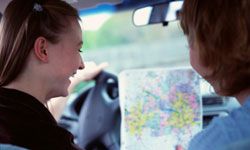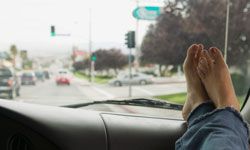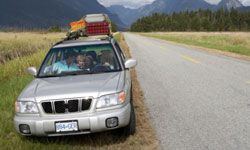Every year, millions of people jump into the car and trade the monotony of their daily routine for the excitement of the open road. This experience has almost become a rite of passage in the United States, where writers like Jack Kerouac ("On the Road") and William Least Heat-Moon ("Blue Highways") have elevated the road trip from a simple drive down the highway to a soul-seeking journey. Unfortunately, the very unpredictability that makes such a vacation so fun can also make it go very, very wrong.
When it comes to road trips, a little planning can go a long way. By anticipating problems that you may encounter and taking steps to prepare for them, you can make the best of even a bad situation. So don't let car trouble, screaming children or bad weather ruin your trip. Click through our 10 stress-free road trip ideas to make your journey as smooth as a long stretch of desert blacktop.
Advertisement




